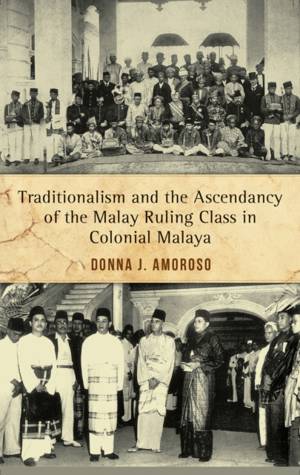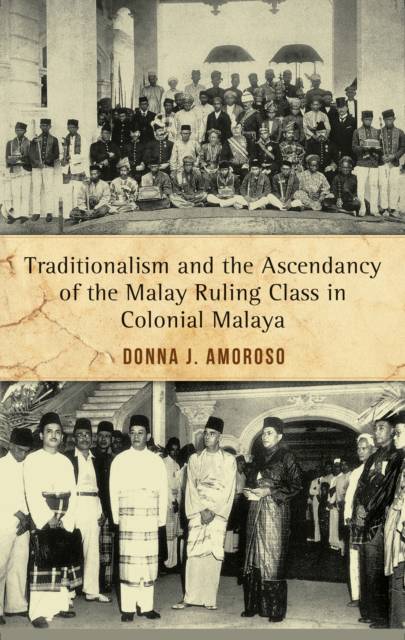
Bedankt voor het vertrouwen het afgelopen jaar! Om jou te bedanken bieden we GRATIS verzending (in België) aan op alles gedurende de hele maand januari.
- Afhalen na 1 uur in een winkel met voorraad
- Gratis thuislevering in België vanaf € 30
- Ruim aanbod met 7 miljoen producten
Bedankt voor het vertrouwen het afgelopen jaar! Om jou te bedanken bieden we GRATIS verzending (in België) aan op alles gedurende de hele maand januari.
- Afhalen na 1 uur in een winkel met voorraad
- Gratis thuislevering in België vanaf € 30
- Ruim aanbod met 7 miljoen producten
Zoeken
Traditionalism and the Ascendancy of the Malay Ruling Class in Malaya
Donna J Amoroso
Paperback | Engels
€ 44,45
+ 88 punten
Omschrijving
In this original and perceptive study Donna J. Amoroso argues that the Malay elites' preeminent position after the Second World War had much to do with how British colonialism reshaped old idioms and rituals - helping to (re)invent a tradition. In doing so she illuminates the ways that traditionalism reordered the Malay political world, the nature of the state and the political economy of leadership. In the postwar era, traditionalism began to play a new role: it became a weapon which the Malay aristocracy employed to resist British plans for a Malayan Union and to neutralise the challenge coming groups representing a more radical, democratic perspective and even hijacking their themes.
Leading this conservative struggle was Dato Onn bin Jaafar, who not only successfully helped shape Malay opposition to the Malayan Union but was also instrumental in the creation of the United Malays National Organisation (UMNO) that eventually came to personify an 'acceptable Malay nationalism'. Traditionalism and the Ascendancy of the Malay Ruling Class in Colonial Malaya is an important contribution to the history of colonial Malaya and, more generally, to the history of ideas in late colonial societies.
Leading this conservative struggle was Dato Onn bin Jaafar, who not only successfully helped shape Malay opposition to the Malayan Union but was also instrumental in the creation of the United Malays National Organisation (UMNO) that eventually came to personify an 'acceptable Malay nationalism'. Traditionalism and the Ascendancy of the Malay Ruling Class in Colonial Malaya is an important contribution to the history of colonial Malaya and, more generally, to the history of ideas in late colonial societies.
Specificaties
Betrokkenen
- Auteur(s):
- Uitgeverij:
Inhoud
- Aantal bladzijden:
- 312
- Taal:
- Engels
Eigenschappen
- Productcode (EAN):
- 9789971698140
- Verschijningsdatum:
- 26/05/2014
- Uitvoering:
- Paperback
- Formaat:
- Trade paperback (VS)
- Afmetingen:
- 152 mm x 224 mm
- Gewicht:
- 453 g

Alleen bij Standaard Boekhandel
+ 88 punten op je klantenkaart van Standaard Boekhandel
Beoordelingen
We publiceren alleen reviews die voldoen aan de voorwaarden voor reviews. Bekijk onze voorwaarden voor reviews.









